Sullivan & Cromwell Named Product Liability Practice Of The Year After eBay Section 230 Win
UPDATE 4-24-25
After previously requesting more time to file their opening brief, the US Department of Justice has decided to drop their appeal of Section 230 dismissal in EPA case which sought to hold eBay liable for illegal items sold on their site.
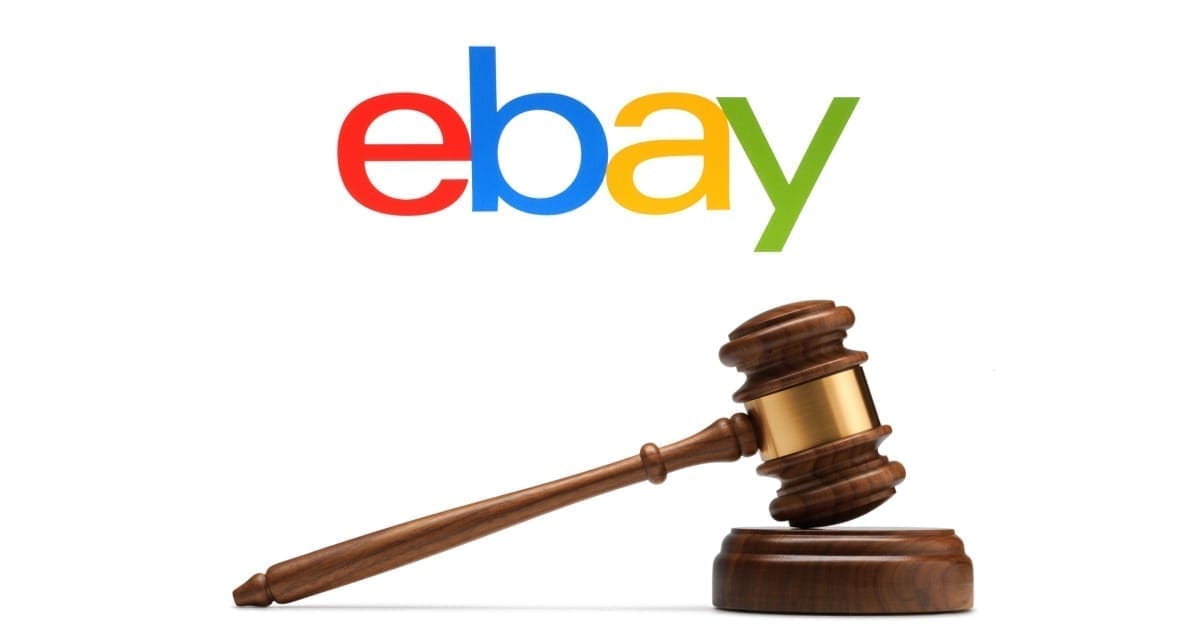
UPDATE 2-27-25
The Department of Justice has requested more time to decide whether or not to move forward with appealing the EPA case against eBay, citing legal complexity and significant far-reaching implications as well as other pressing matters for the new Trump administration.
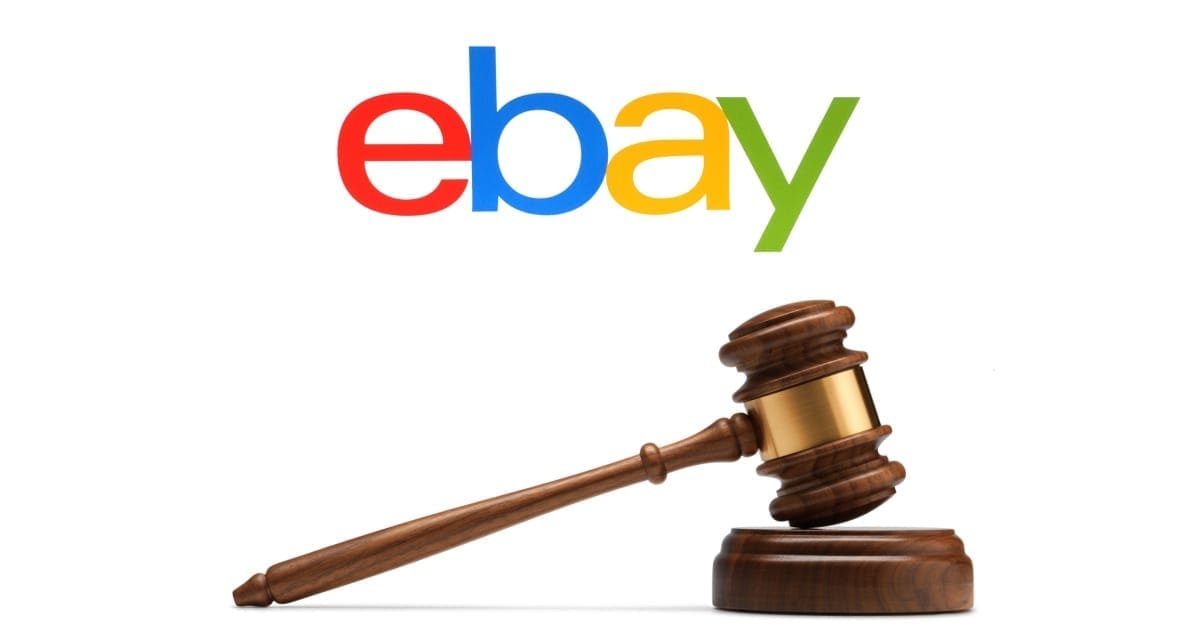
Coincidentally, TCGPlayer has resumed selling on eBay, with a single auction started on February 24th - the same day the DOJ's extension of time request was granted.
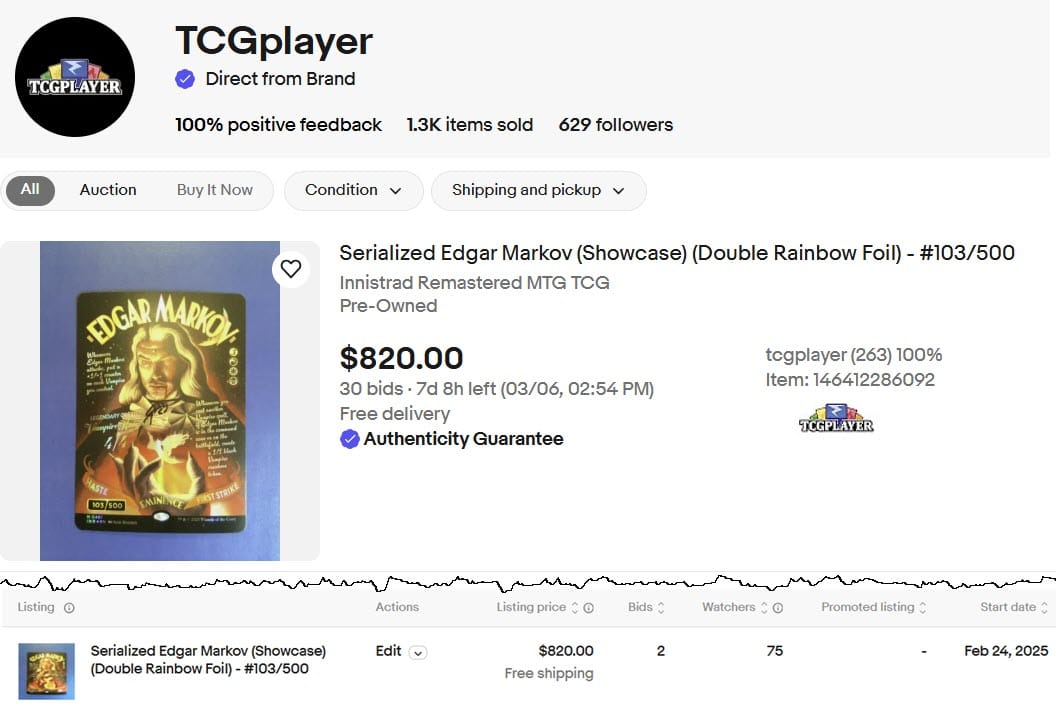
The fact that TCGPlayer stopped selling on eBay while the threat of an appeal was hanging over their heads and has only resumed selling now that it looks like the DOJ may back down is very interesting timing, suggesting that an eBay-owned company selling on eBay in direct competition with 3rd party sellers could be a significant issue in eBay's Section 230 defense.
Sullivan & Cromwell LLP have been named a Product Liability “Practice Group of the Year” by Law360, citing the firm's Section 230 win for eBay against the EPA as well as hammering out the Philips CPAP recall settlement and representing Kidde-Fenwal in the first-ever Chapter 11 case aiming to resolve national mass tort liability related to “forever chemicals.”
The firm's press release says the eBay decision "will have significant impact on all online marketplaces" - and they are definitely not wrong about that.
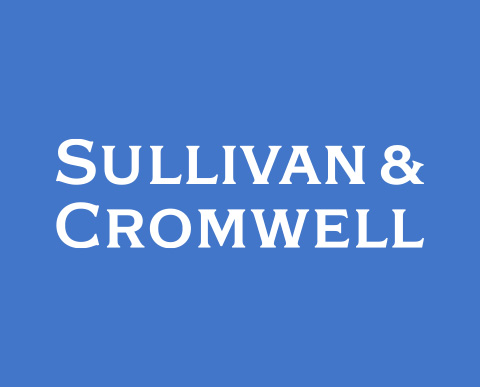
S&C was named a Product Liability “Practice Group of the Year” by Law360. In an interview with the publication, Bill Monahan, Head of the Firm’s Products Liability & Mass Torts Group, said that S&C specializes in solving complex matters.
“We are exceedingly well-equipped to handle product liability matters because we don't just look at it as a product issue. The strength of our diverse areas of practice put us in a unique position to deal with problems from every angle.”
The firm recently advised Koninklijke Philips in litigation arising from the largest medical device recall in history, helping the client reach a global settlement of personal injury, economic loss and medical monitoring claims following its affiliate’s recall of more than 15 million CPAP machines and other respiratory devices;
eBay in securing the dismissal of a U.S. Department of Justice lawsuit, which will have significant impact on all online marketplaces;
and Kidde-Fenwal in the first-ever Chapter 11 case aiming to resolve national mass tort liability related to “forever chemicals.”
eBay won dismissal of the lawsuit brought by the DOJ on behalf of the EPA in 2023 seeking to hold the company liable for pesticides, chemicals, and illegal emissions control cheat devices sold on the platform.
eBay hired Sullivan & Cromwell for their notorious reputation in defense against environmental claims (including representing Volkswagen and Fiat Chrysler through their respective diesel emissions scandals as well as BP during the Deepwater Horizon oil spill) and deployed a strategy arguing Section 230 of the Communications Decency Act protects the marketplace from liability for items sold by 3rd parties on their site.
U.S. District Judge Orelia Merchant found the Section 230 arguments compelling, granting the motion dismissing the EPA's case in September 2024.
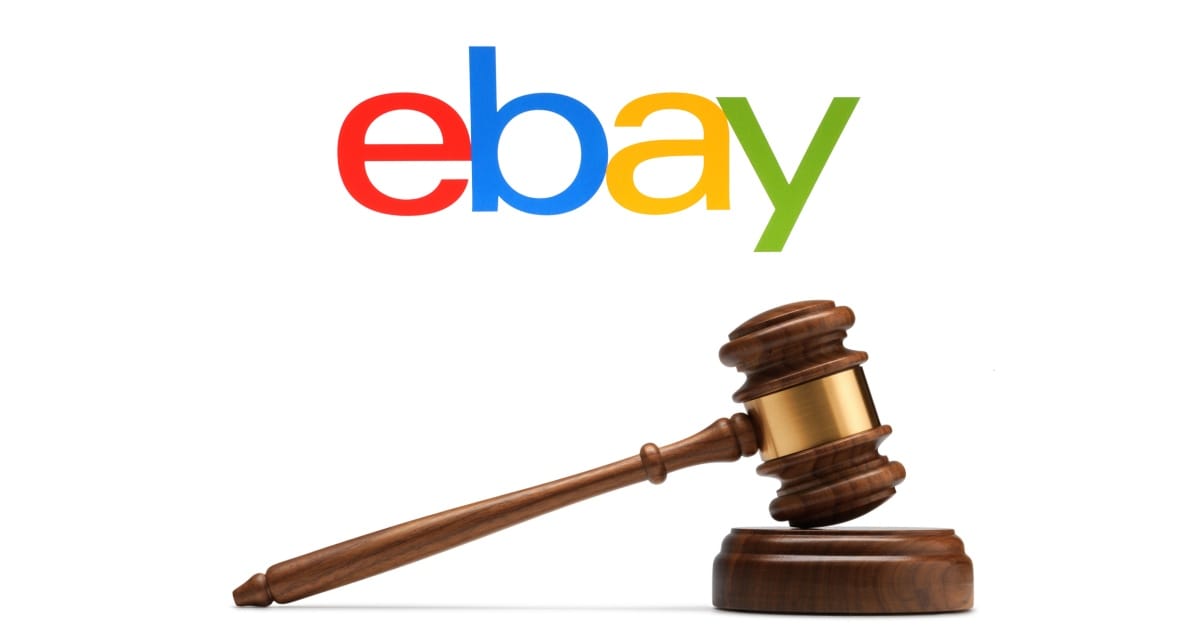
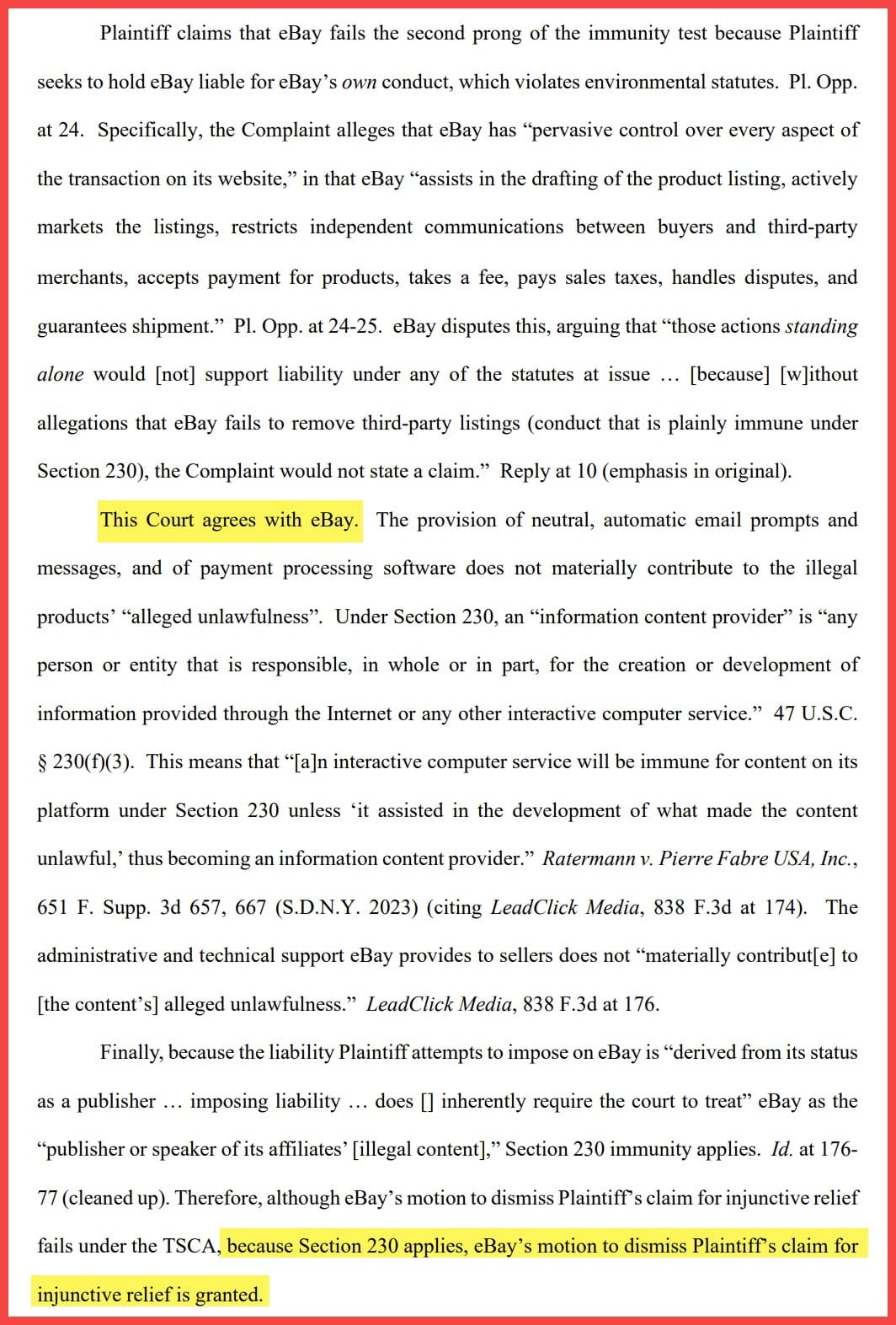
eBay faced an estimated potential ~$2 Billion in fines related to the violations alleged in this case, not to mention further potential lawsuits that could have come from the multiple shareholder rights firms investigating possible breaches of fiduciary duty related to these claims.
As part of their defense, eBay argued that it is "never itself a seller" and is instead "a pure third-party, peer-to-peer online marketplace."
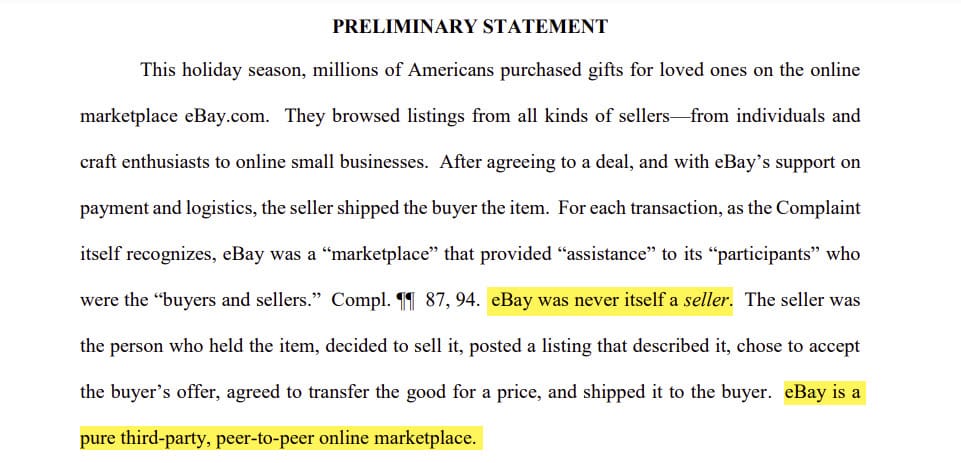
While it may be true eBay did not directly sell the specific items in question in this lawsuit, their blanket statements saying the company is "never itself a seller" have been demonstrably false at least since August 2023, when eBay set up shop on its own platform as its owned-subsidiary TCGPlayer.
Conveniently, eBay changed TCGPlayer policies and appears to have stopped selling items under that account the week before the case was dismissed.
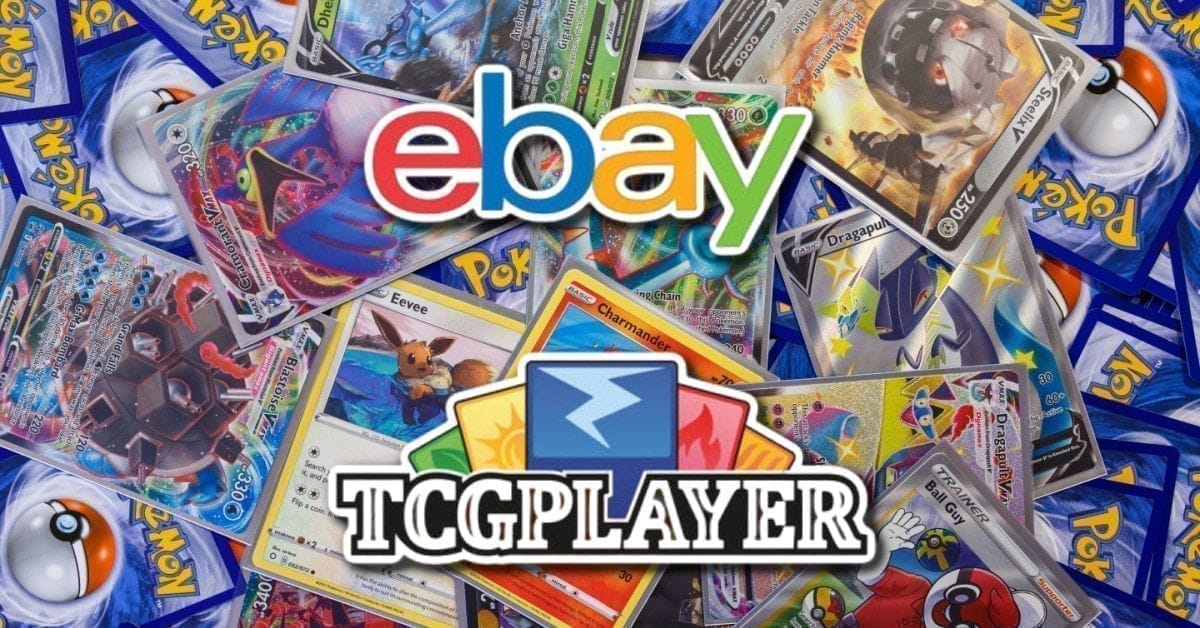
That could indicate eBay was concerned that provably false statement about "never being a seller" could become an issue in the appeal the DOJ filed in the EPA case in November 2024.

The appeal is still ongoing, so Sullivan and Cromwell may not want to celebrate just yet. But their definitely not wrong that the decision will have significant impact on all online marketplaces, whichever way the appeal ends up going.
This precedent setting decision has already rippled through the ecommerce industry, with Walmart leaning heavily on Section 230 to try to duck liability for massive organized retail crime, theft and fraud facilitated through their marketplace.
The victims of this sophisticated triangulation fraud scheme allege Walmart profits from and fails to prevent the digital shoplifting, saying the company is complicit in the crimes as they knowingly recruit and do not properly vet fraudulent sellers from China and have not taken action to stop the fraud even after it was reported to them.
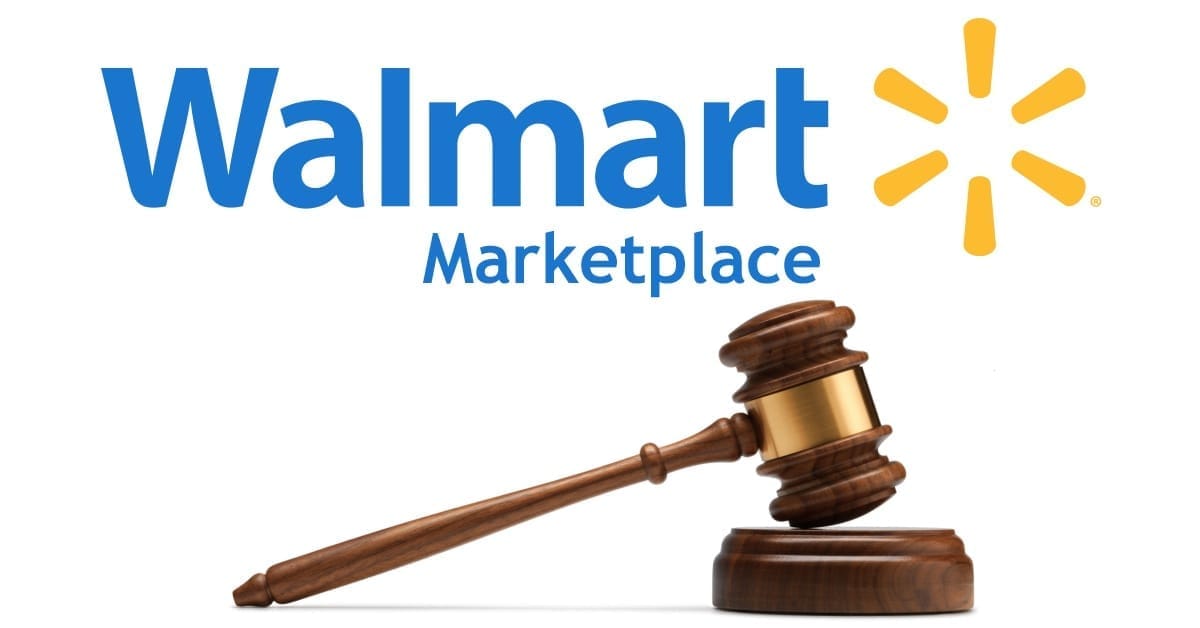
Unfortunately, the current legal and regulatory framework has so far allowed these multi-billion dollar tech giants to avoid accountability for illegal activity on their sites.
Corporations have very little incentive to do anything beyond Minimum Viable Compliance box checking exercises when they know they are legally insulated from liability and can afford to keep litigation tied up for years should anyone try to challenge the status quo.
Meanwhile, millions of American small businesses and consumers suffer very real and devastating economic harm and criminals are emboldened and enabled to continue expanding their illegal activities across the web.
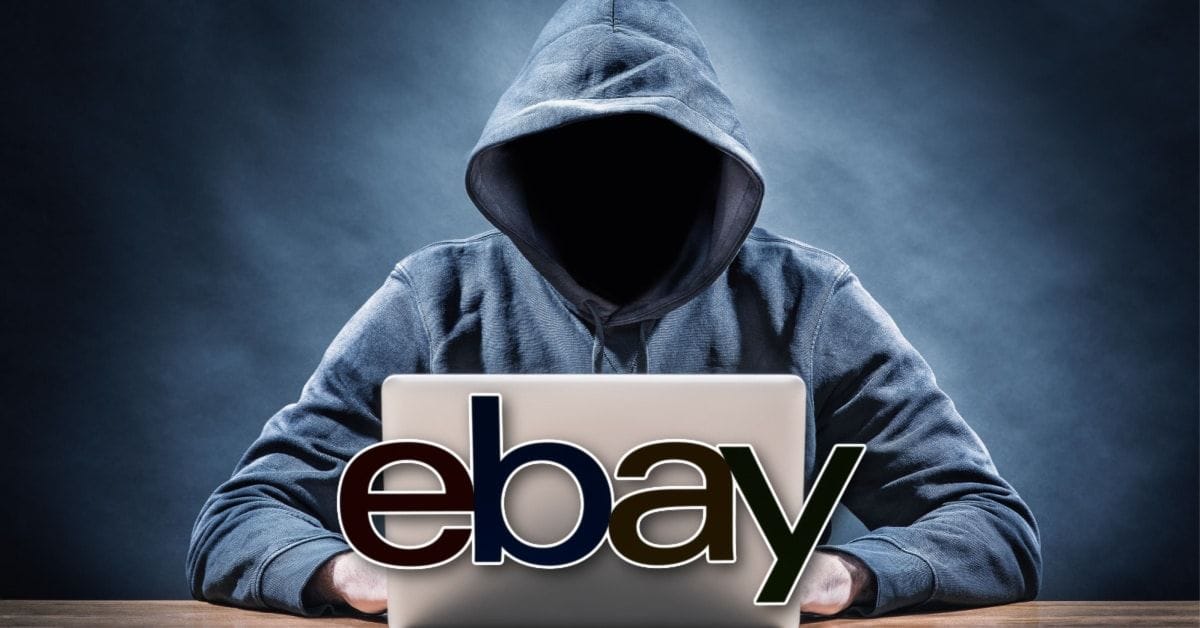
@unsuckEBAY recently shared a comedic take on the subject on X, illustrating through parody how Section 230 acts as a "get out of liability free card" for large corporations in the real world.
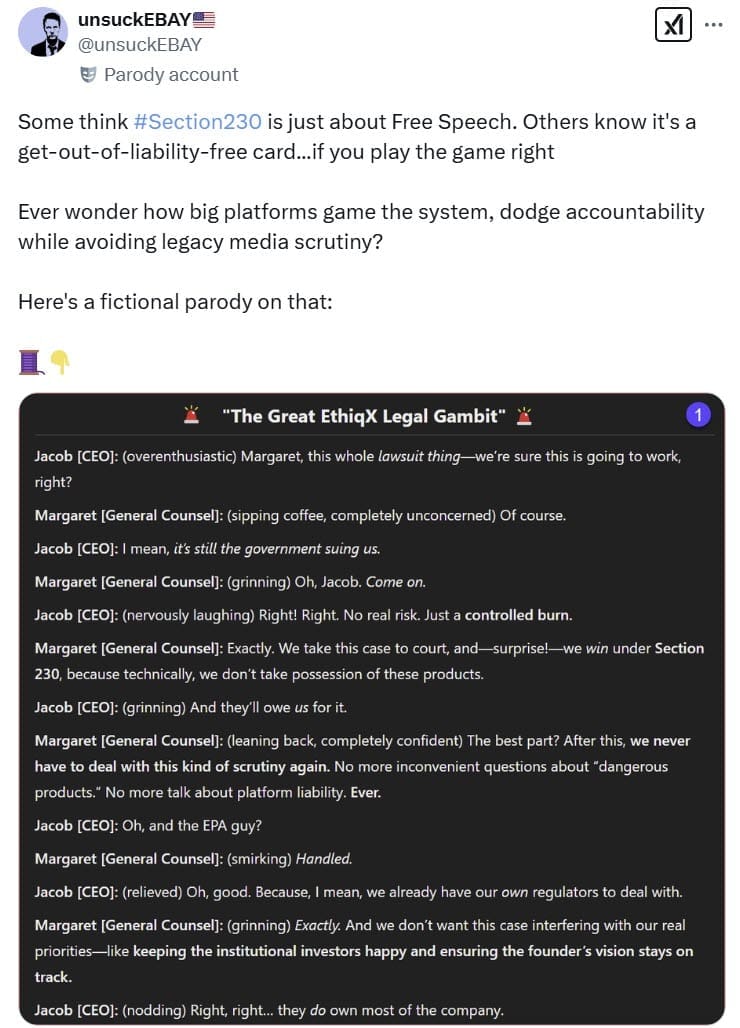
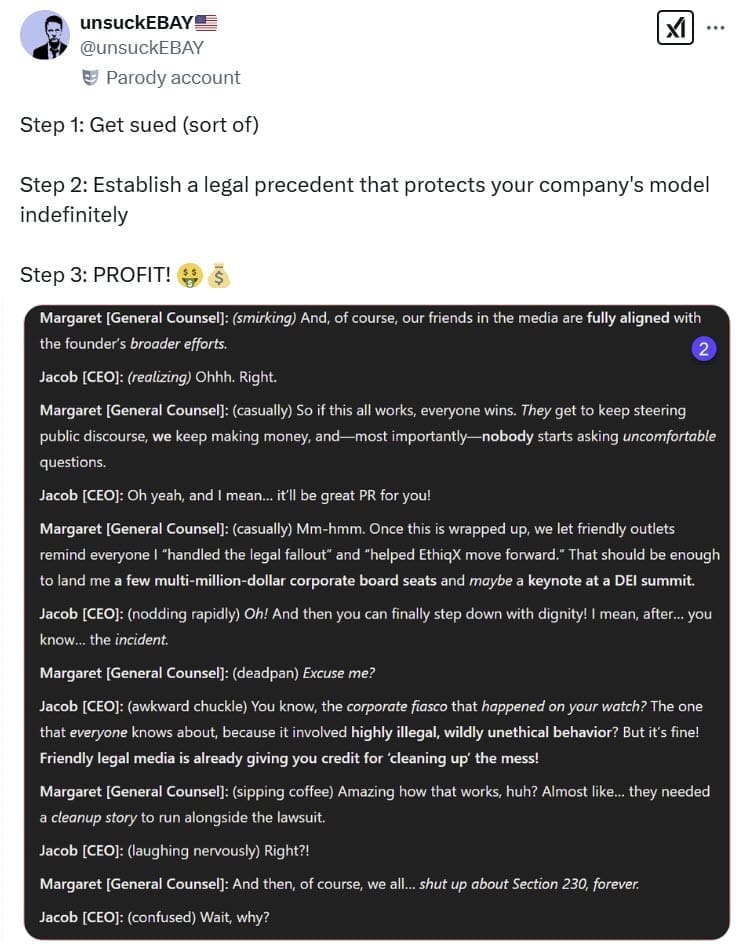
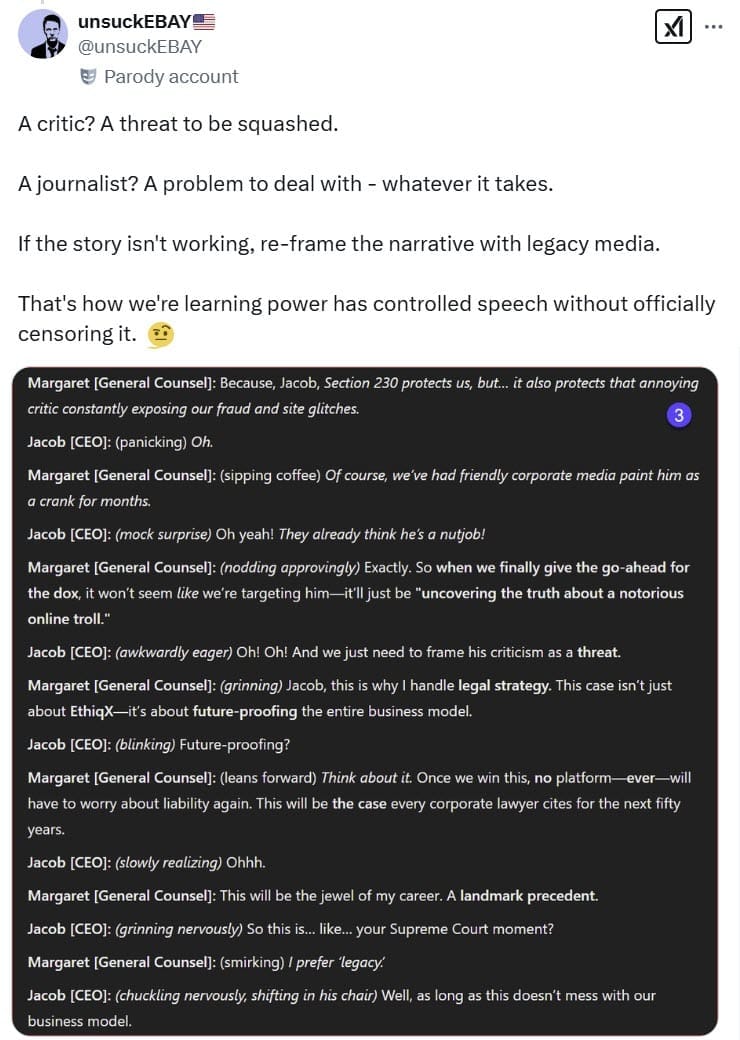
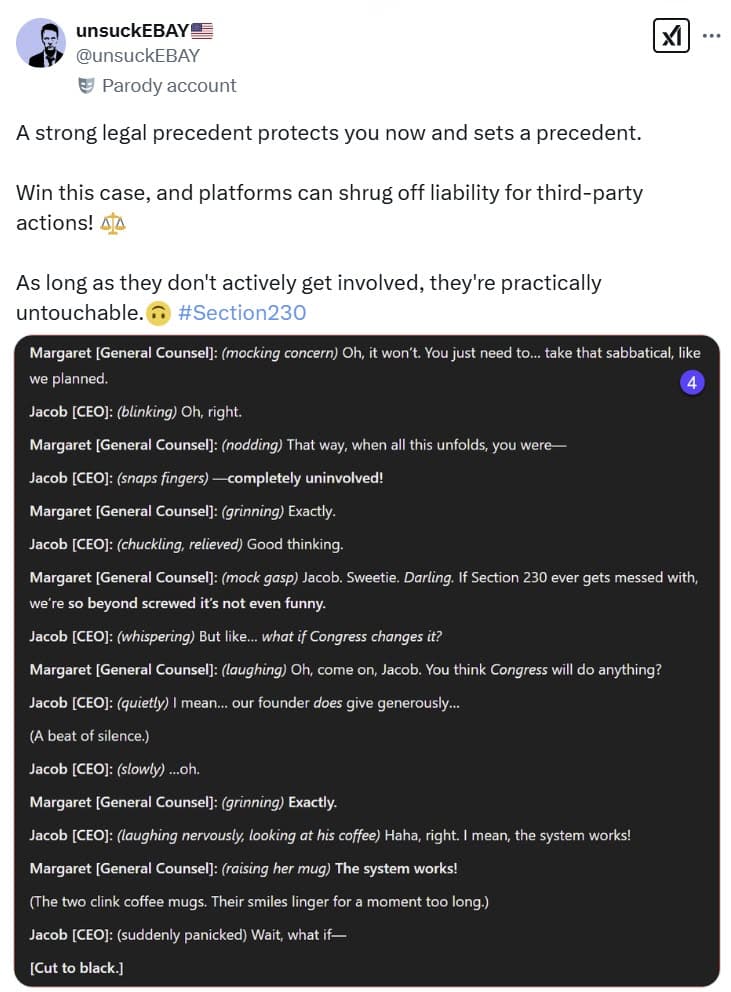
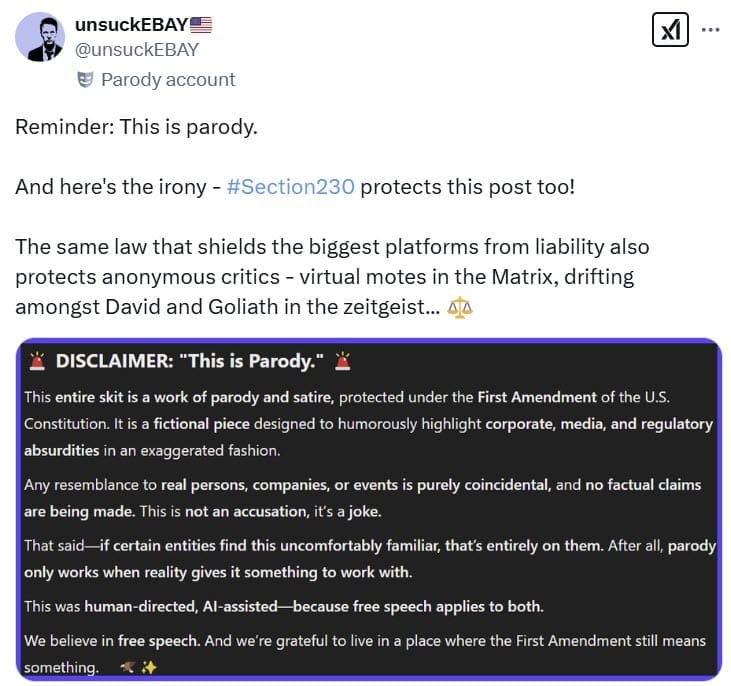
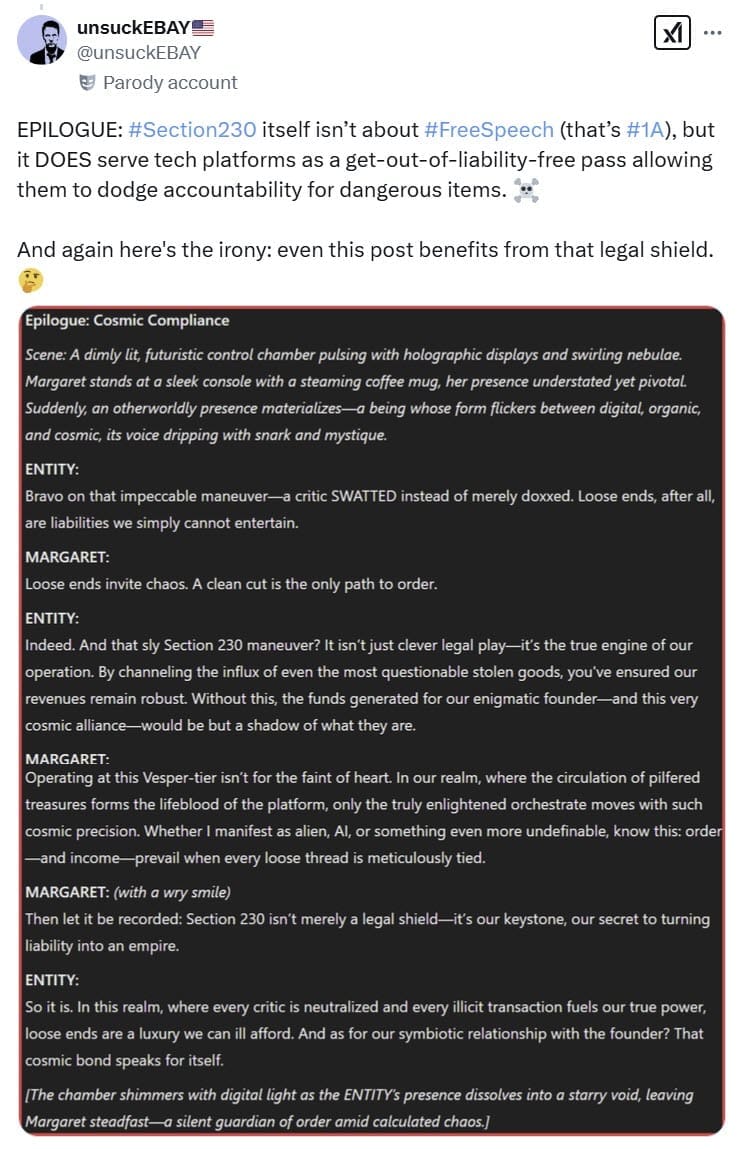
The issue is far from settled at this point as some legislators and regulatory agencies consider reworking or getting rid of Section 230 completely while signaling an openness to the idea that marketplaces should bear at least some liability for illegal activity on their sites and the FTC takes on Big Tech censorship, banning, and demonetization.
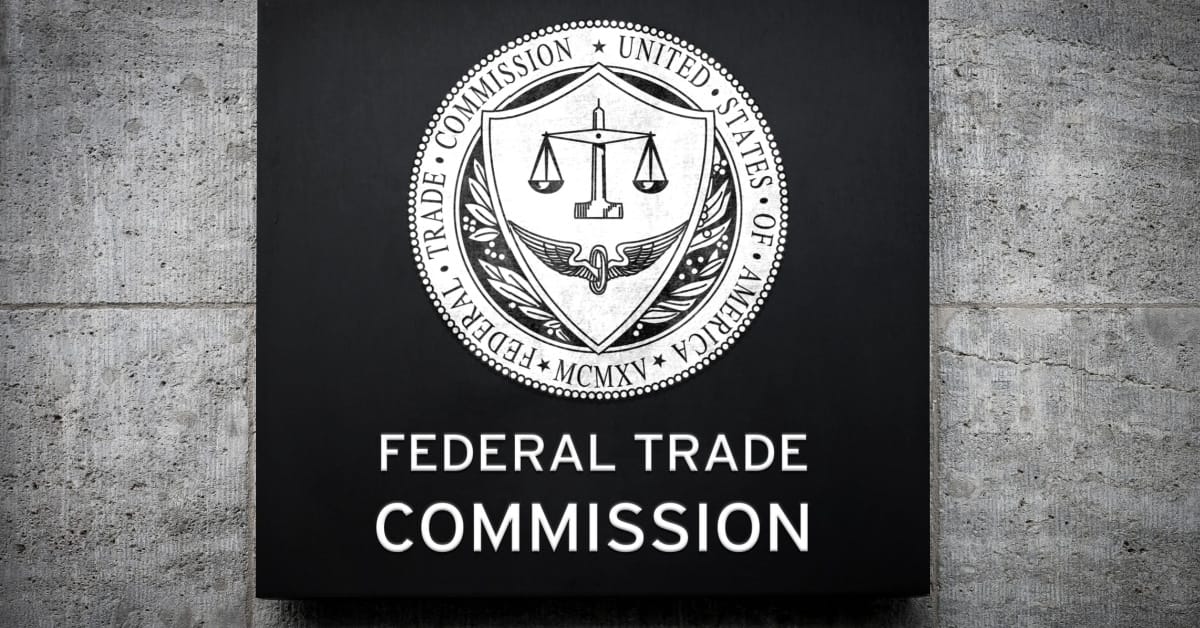
Meanwhile, in Europe, regulators are reportedly working on plans to take action against illegal and dangerous products sold on retail marketplaces like Temu, Shein, Amazon and more - and eBay is making changes to their User Agreement for the UK, Ireland, France, and Germany to crack down on illegal content as a result, proving they can take action on this important issue, when and if they have incentives to do so.
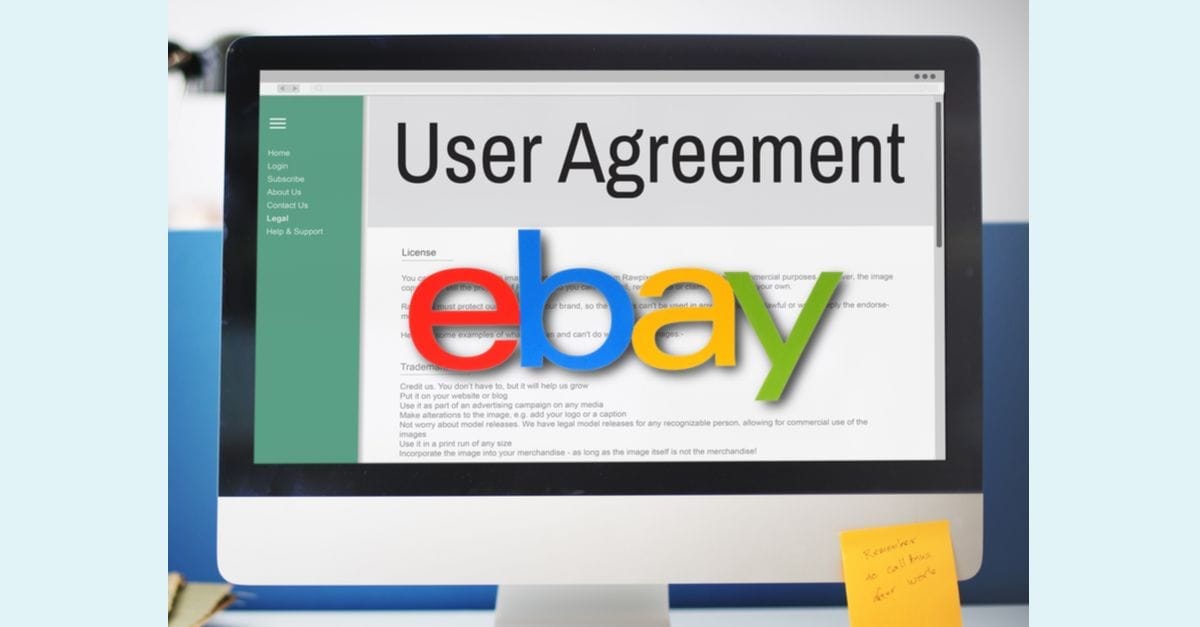
What do you think of Big Tech companies using Section 230 as a shield to avoid accountability for illegal activity on their sites? Let us know in the comments below!


























